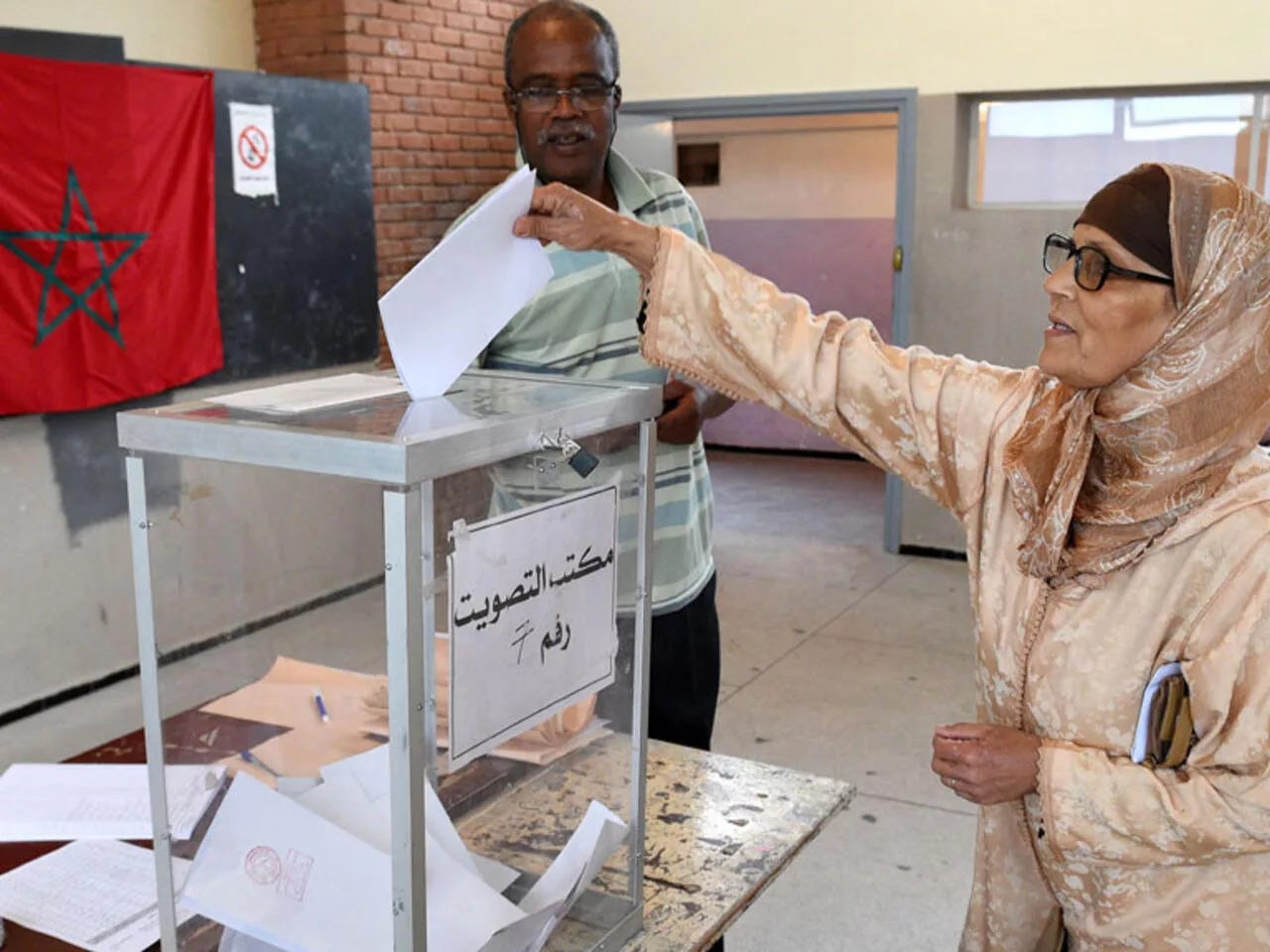The upcoming 2026 elections in Morocco appear, on the surface, to be just another waypoint in the country’s political trajectory. Yet as the date approaches, familiar concerns return to the fore: mounting public distrust toward political parties, declining voter turnout, and growing questions over the transparency and fairness of the electoral process.
The 2025 Throne Day speech sparked widespread debate after King Mohammed VI assigned the task of overseeing electoral consultations to the Minister of the Interior instead of the Prime Minister.
Traditionally, the Prime Minister has led discussions surrounding electoral legislation and scheduling, while the Interior Ministry handles the logistical organization of the elections.
The monarch’s deviation from this tradition was seen by some observers as a sign of eroding confidence in the current government’s ability to manage such a pivotal national moment.
The “Mother of All Ministries” Takes the Helm
Under Article 42 of the Constitution, the King is designated as the supreme arbiter among institutions, responsible for ensuring the proper functioning of the state, preserving democratic choice, and protecting rights and freedoms.
The royal decision to delegate electoral consultations to the Interior Ministry can thus be interpreted as a constitutional exercise of this arbitration role, especially amid growing distrust between political actors.
Prime Minister Aziz Akhannouch welcomed the move, calling it “a fundamental guarantee for the neutrality of the electoral process and the reinforcement of political pluralism.” He argued that the Interior Ministry still a member of the government but unaffiliated with any political party was better positioned to impartially manage the elections.
According to Akhannouch, previous elections supervised by the Prime Minister blurred the lines between state and party, compromising the integrity of the process.
While Akhannouch dismissed opposition to Interior Ministry oversight as mere political opportunism, former Prime Minister Abdelilah Benkirane warned of a potential “return to dictatorship” if the powerful ministry dominates the process without ensuring fair competition and inclusive participation.
Parties Submit Reform Proposals
Responding to the Interior Ministry’s call for input, major political parties submitted detailed reform memoranda aimed at boosting participation, representation, and transparency. These documents focused on three core areas: revising electoral rules such as district boundaries and voting systems promoting inclusion of marginalized groups like youth, women, and Moroccans abroad, and combating the influence of money in politics through enhanced oversight.
The opposition Party of Progress and Socialism urged a ban on candidacies of individuals with known corruption records and called for stricter penalties for all electoral offenses. It also pushed for a digitized voting process to enhance transparency and advocated for raising women’s representation to one-third of parliamentary seats.
The party proposed a rotational system in candidate lists to ensure meaningful participation, rather than relegating women to symbolic positions at the bottom of electoral rosters.
The Independence Party, part of the governing coalition, proposed allocating a portion of public funding equitably among all parties, while mandating detailed financial reporting to the Court of Auditors. It also called for the recovery of misused funds and legal action against violators.
Meanwhile, the opposition Justice and Development Party proposed a full review of electoral registers to ensure comprehensive and transparent voter rolls. The party also demanded a redrawing of electoral districts to reflect demographic shifts and insisted on a binding party charter to bar the nomination of candidates suspected of corruption and outlaw vote buying and illicit campaign financing.
The Authenticity and Modernity Party, also within the ruling majority, called for harsher penalties for electoral fraud at all stages of the process. It proposed capping campaign expenses, including media and advertising costs, in accordance with current electoral laws.
The opposition Socialist Union of Popular Forces offered a reform plan advocating for automatic voter registration using national ID cards, with youth enrolled at age 18. It emphasized that redistricting is key to representative justice and called for a mixed-list system combining local constituencies, women-only lists, and a separate district for Moroccans abroad.
For its part, the ruling National Rally of Independents underscored the need to strengthen legal and institutional safeguards for the upcoming democratic exercise, prioritizing widespread voter engagement and restoring public trust.
Notably, the ruling coalition has largely focused its efforts on promoting the government’s agenda rather than engaging deeply with party-specific proposals, maintaining that the ongoing dialogue with the Interior Ministry has been “positive.”
Oversight and Integrity: Persistent Challenges
Despite broad consensus on the importance of fair elections, several persistent challenges continue to overshadow the process.
First, analysts warn that the strong influence of the executive branch risks undermining electoral neutrality. Previous elections saw watchdogs raise concerns about misuse of public resources and local authority to benefit certain candidates.
A report by election observers from the Parliamentary Assembly of the Council of Europe highlighted the lack of transparency around annulled ballots and turnout rates by district as a factor eroding public confidence.
Second, campaign financing remains a weak spot. Without effective oversight of party expenditures, “dark money” can easily enter the fray. In response, parties have called for stricter accountability mechanisms and the use of digital tools such as unified financing platforms to track money flows and prevent disinformation campaigns.
Third, the stark disparity between large and small parties undermines electoral fairness. Ruling parties benefit from far superior media exposure and financial networks compared to smaller or emerging groups, raising questions about equal opportunity in elections.
Finally, voter apathy tops the list of concerns. It reflects not just silence but a deep crisis of confidence that threatens the legitimacy of elected institutions and the future of representative democracy.
Despite repeated calls for citizens to vote, a widespread sense especially among youth that political parties offer no compelling alternatives persists. Many believe that elections change little in their daily lives and fail to open up meaningful prospects for the future.



